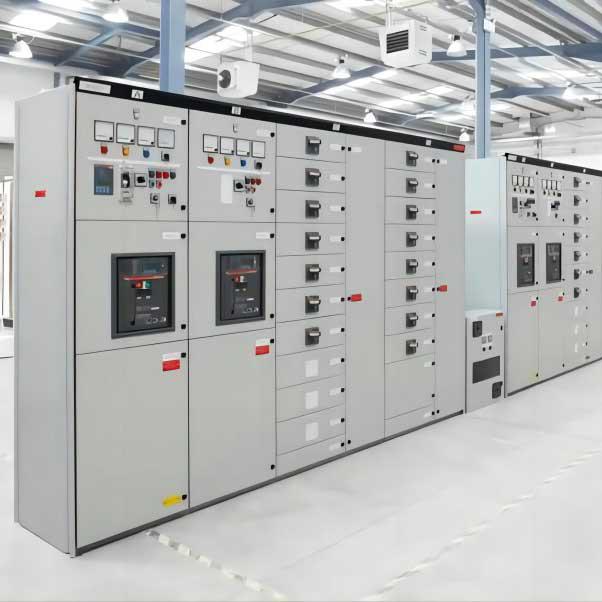A Comprehensive Guide to Choosing the Right Switchgear Supplier

Switchgear plays a critical role in the electrical distribution network, ensuring the safe and reliable operation of power systems. Whether you're managing an industrial facility, a commercial building, or a residential project, the choice of a switchgear supplier is essential for the performance and safety of your electrical system. Selecting the right supplier can minimize downtime, reduce risks, and improve overall operational efficiency. This article will provide insights into how to choose the best switchgear supplier, considering factors such as product quality, customization, customer support, and pricing.
1. Understanding the Role of Switchgear
Switchgear consists of devices that control, protect, and isolate electrical circuits. It is used to ensure that electrical power is efficiently distributed across networks while protecting the system from faults and overloads. The key components of a switchgear system include circuit breakers, disconnectors, fuses, and relays. These components allow electrical engineers to safely manage power distribution, reducing the risk of system failures, electrical fires, and accidents.
Given the critical nature of switchgear, finding a reliable supplier is essential. Not all suppliers offer the same quality of products, services, or pricing, so evaluating your options is crucial for ensuring that your switchgear will meet your specific needs.
2. Key Factors to Consider When Choosing a Switchgear Supplier
a. Product Range and Quality
The first step in selecting a switchgear supplier is to assess their product offerings. Suppliers with a broad range of products are more likely to offer the specific switchgear you need for your application, whether it’s for low-voltage, medium-voltage, or high-voltage systems. Ensure the supplier provides components that meet industry standards for performance, durability, and safety. High-quality switchgear typically comes with certifications such as ISO, IEC, or ANSI, which demonstrate compliance with global standards.
In addition, the longevity and reliability of the switchgear products should be top of mind. A reputable supplier will provide high-performance products that withstand operational stresses, reducing the need for frequent maintenance and replacements.
b. Customization and Flexibility
Different projects have different electrical requirements, so a one-size-fits-all approach might not always work. Look for a switchgear supplier that can customize their offerings to match your project’s specifications. Customization can involve tailored configurations, design modifications, or specific materials to suit environmental conditions or unique operational needs. A supplier with experience in providing flexible, adaptable solutions can better support the unique demands of your system.
c. Technical Expertise and Support
The technical knowledge of your supplier is equally important as their product offerings. Switchgear systems are complex, and you may require expert advice on the best products to suit your requirements. A supplier with a knowledgeable engineering team can help you design a system that’s both cost-effective and efficient, ensuring proper integration with existing infrastructure.
Moreover, consider the supplier’s after-sales support. Reliable technical support is critical in minimizing downtime and ensuring quick resolution of any issues that arise. Ensure that your supplier offers comprehensive customer service, including installation assistance, training, and emergency support.
d. Reputation and References
A supplier’s reputation in the market is an important indicator of their reliability. Look for suppliers with a proven track record of delivering high-quality products and services. You can start by reviewing case studies, client testimonials, and industry awards or recognition. Speaking with past clients can give you valuable insight into their experience with the supplier, including the timeliness of deliveries, the quality of customer support, and how the supplier handled unexpected issues.
Industry references, especially in sectors similar to yours, can also provide reassurance that the supplier has experience dealing with the specific challenges of your project.
e. Cost and Value for Money
Cost is always a significant consideration, but it should be weighed against the value provided. While it’s tempting to choose the lowest bidder, be cautious of suppliers offering extremely low prices, as this could signal subpar quality or hidden costs in the long run. Instead, focus on finding a supplier that offers a balance between cost-effectiveness and product quality.
Look for transparent pricing models that cover not only the cost of the switchgear but also delivery, installation, maintenance, and after-sales support. It’s also beneficial to compare multiple suppliers to gauge industry pricing standards.
3. Emerging Trends in Switchgear Supply
As the demand for energy-efficient and eco-friendly electrical systems rises, many switchgear suppliers are adopting sustainable practices. Look for suppliers that offer switchgear solutions designed to improve energy efficiency, minimize carbon footprints, and comply with environmental regulations. Innovations such as digital switchgear, smart-grid integration, and remote monitoring systems are becoming increasingly important in modern power distribution networks.
Additionally, as industries transition toward renewable energy sources, the demand for specialized switchgear for solar, wind, and other renewable systems is increasing. If your project involves renewable energy integration, ensure that your supplier is equipped with the right expertise and products.
Conclusion
Selecting the right switchgear supplier is crucial for the safety, reliability, and efficiency of your electrical system. By considering factors such as product range, quality, customization options, technical expertise, and cost, you can find a supplier that meets your project’s unique needs. Keep in mind that long-term value should always take precedence over short-term cost savings. A trusted supplier will provide not only high-quality switchgear but also ongoing support and expertise to ensure your power systems run smoothly for years to come.


